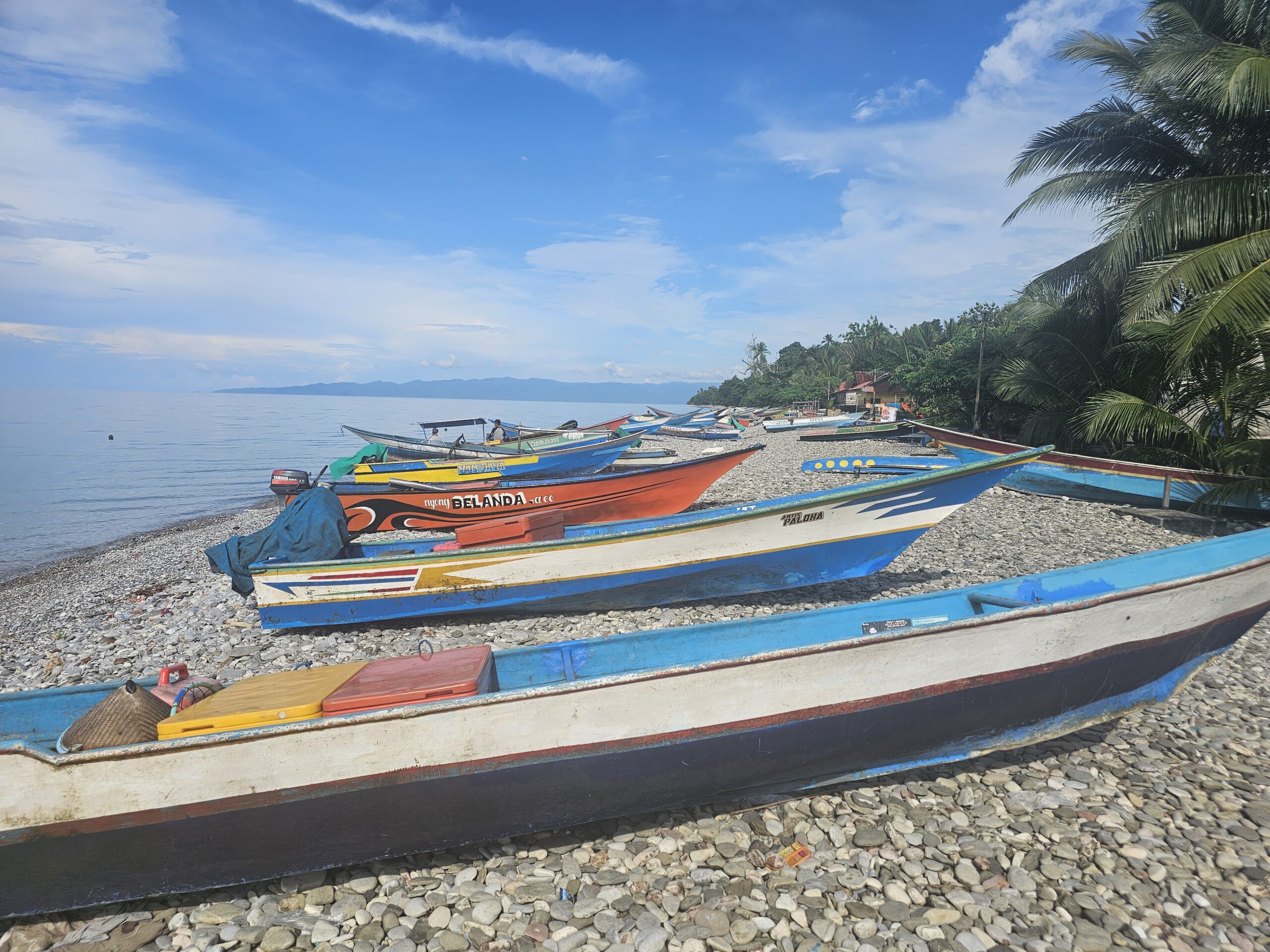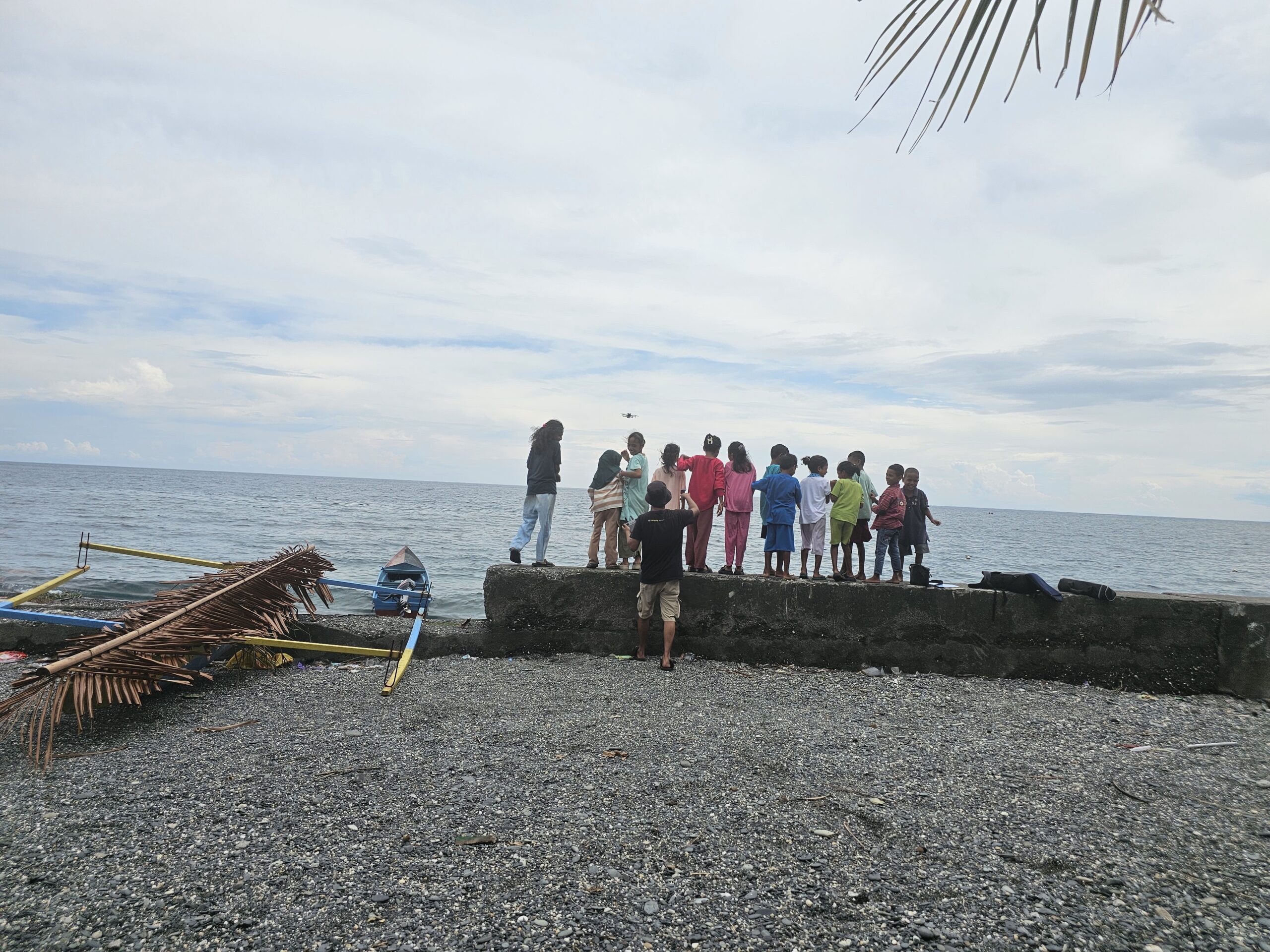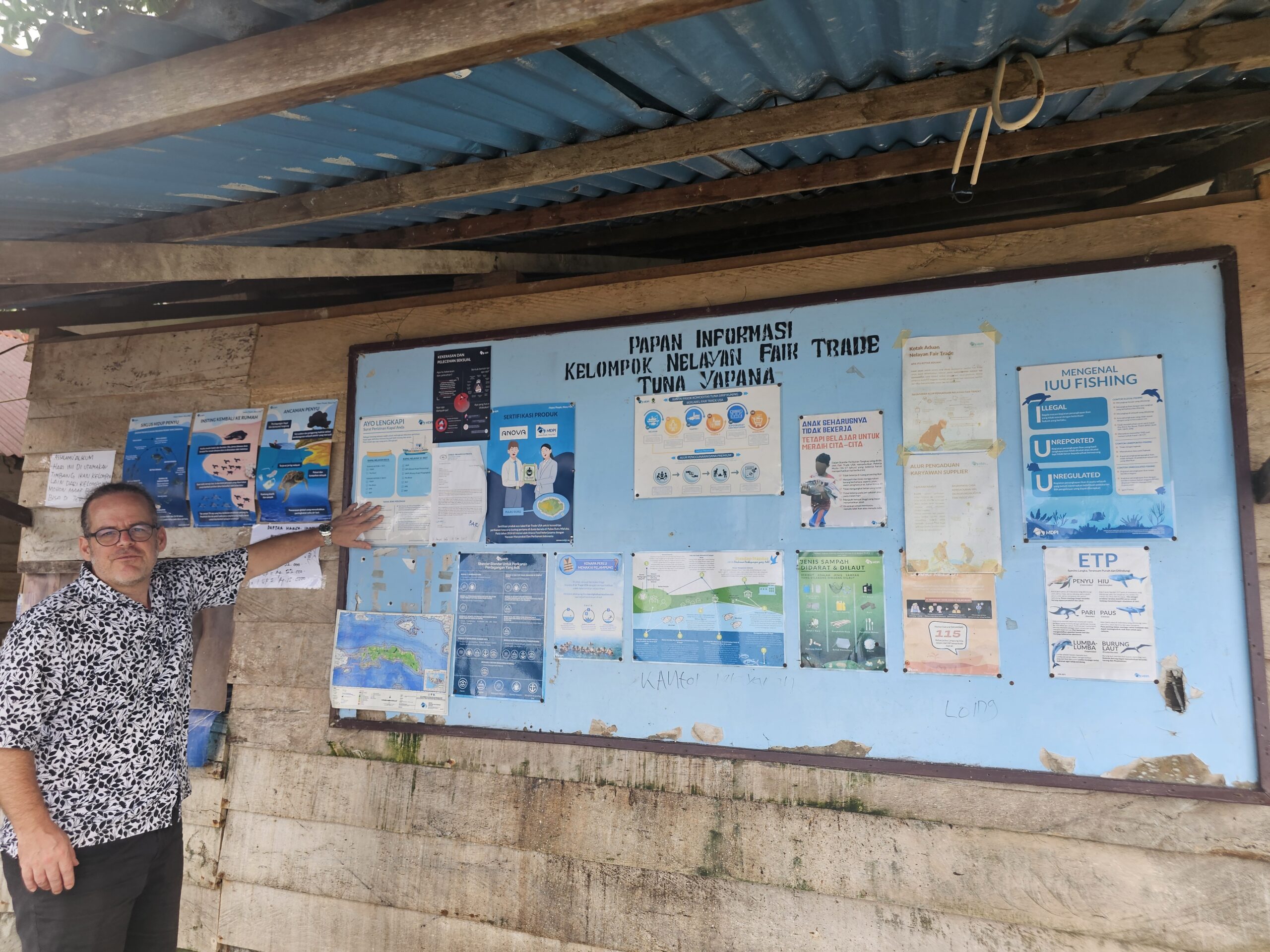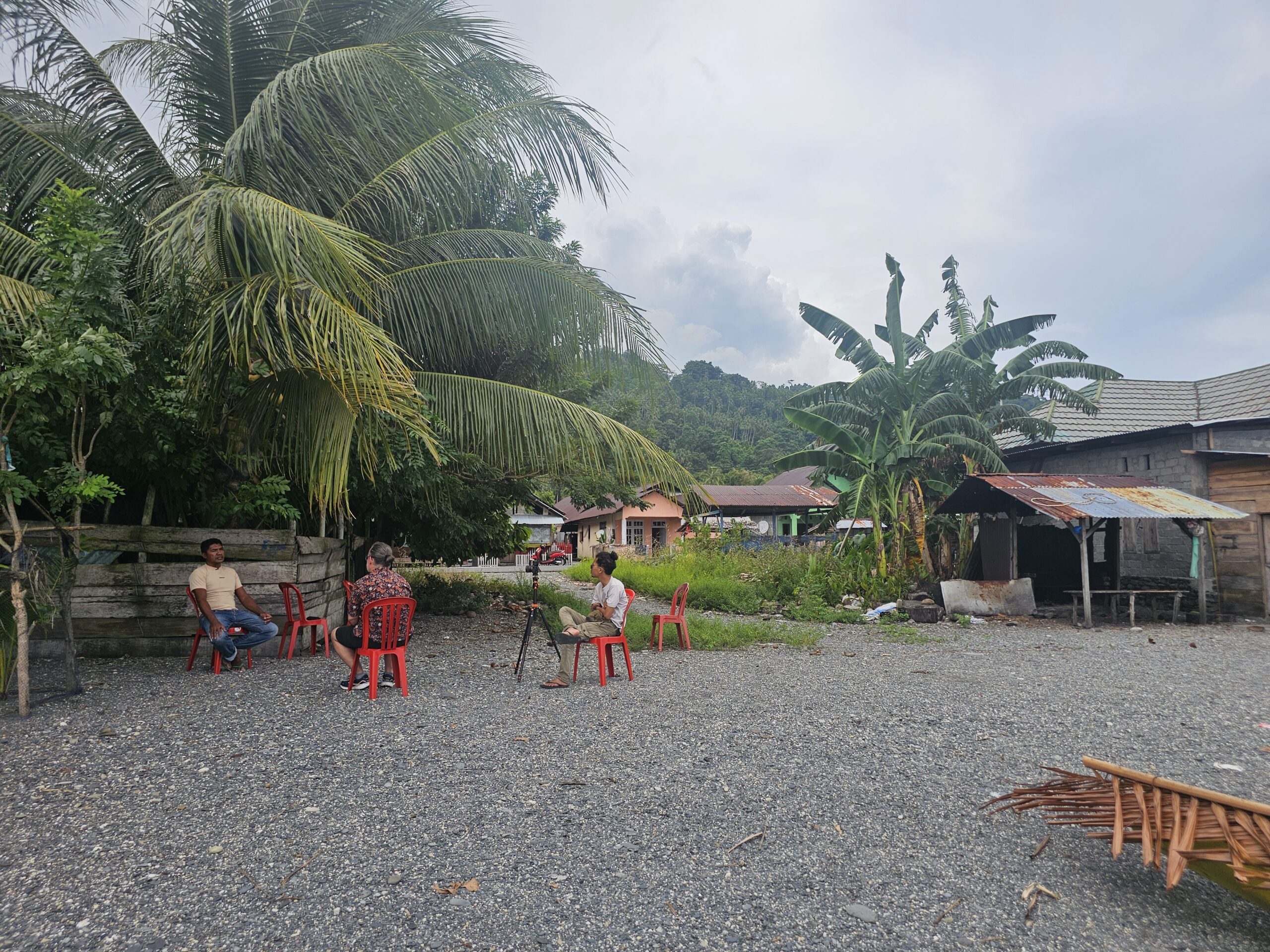
Pictured: Fishing boats in Baru, Indonesia
Fair Trade Seafood
As global demand for seafood increases, worker rights and environmental protections are often left behind as fishers expand to keep pace. The Fair Trade Certified™ seafood program launched in 2014 to address the urgent need to protect workers, coastal communities, and ocean ecosystems. Now, our team is seeing how a decade of certification is having global impact—and how fishers are utilizing Fair Trade USA™ standards to build up their communities and protect the ecosystems they call home.
Happy People, Many Fish
MDPI, an NGO in Indonesia, was founded to empower coastal communities to achieve sustainability by supporting community organization and harnessing market forces. Stemming from Netherlands-based seafood firm Anova’s supply chain, both Anova and the fishers involved saw potential in working with small-scale fishers to improve supply chains for sustainably sourced yellowfin tuna across the region. Around 90% of fishers in Indonesia are small-scale fishers, yet resources are lacking, and many fishers struggle to see returns on their investments. To address these needs, Anova created MDPI or Masyarakat dan Perikanan in Indonesia, with the motto “Happy People, Many Fish”.
MDPI and Anova worked with a yellowfin tuna fishery to achieve Fair Trade Certification and develop a fisheries community program. The program supports coastal communities in building financial literacy, accessing business training, and organizing fishers into active cooperatives. Since its start, MDPI has helped support over 50 fisher associations across Indonesia—many of which have achieved Fair Trade Certification. This means that workers are receiving fair prices for their catch, working in safe conditions, and securing opportunities to expand their businesses and protect their communities.
“MDPI works to prepare small-scale fishers to be resilient – not just resilient to the impacts of climate change and other environmental challenges, but also more resilient in business and more effective in business negotiations. If supply chain companies can negotiate directly with a cooperative, that can benefit the producer and the buyer if the fishermen are prepared to negotiate directly. MDPI provides training and coaching to support the cooperatives to run and manage a small business and negotiate with more leverage.”
Jaz Simbolon, Director at MDPI

Pictured: Children in Baru look out at a drone capturing footage of their fishing community
MDPI and Fair Trade
Before the introduction of the Fair Trade USA program, many fishers in Indonesia, especially those in remote regions, were not organized into fisher associations and seldom discussed fishing practices with one another. When MDPI launched the Coastal Tuna Project, a structured approach to community engagement was introduced, bringing fishers together to collaborate, share knowledge, and take ownership of collective development. Today, there are over 500 fishers working in Fair Trade Certified fisheries across Indonesia.
MDPI shared a short documentary on how certification impacts the lives of fishers to celebrate a decade of Fair Trade USA partnership:
Fair Trade USA™ heads to Baru, Indonesia
This year, our team headed to Indonesia to visit local fishers and see our standards in action. What they saw was a story of resilience and dedication—associations that had kept up with certification even during difficult times like COVID-19 and came out stronger because of it. Associations have come together to buy land certificates, build fishing camps, and distribute profits fairly among members. This means that all fishers, including those on small-scale and remote fisheries, are able to receive fair pricing and opportunities to expand their businesses.
Community Development Funds have been used by fishers in Baru to invest in the next generation, securing education for children to help ensure a thriving future. Fair Trade seafood standards also require that 30% of Community Development Funds are used on ocean conservation projects, which are being carried out to protect future generations and maintain fisheries.
Building Trust and Resiliency with Fair Trade Seafood
Fisher livelihoods in Indonesia continue to rely on the market for handline yellowfin tuna, where prices fluctuate based on market dynamics and product quality. The Fair Trade USA seafood program has helped increase understanding of the market, so that fishers can maximize the price of their catch. In the past, many programs came to Indonesia to promise fishers economic development but because of inconsistency and lack of understanding for local needs, these programs were ineffective. MDPI and the Fair Trade program brought a different approach—centered around consistent community engagement and immediate benefits through Community Development Funds. The program was created to work alongside fishers to ensure that standards are improving livelihoods while building resiliency in coastal communities.


Pictured: The Fair Trade USA team explores Baru, interviewing community members and seeing standards in action
Looking Toward the Future
Fair Trade fishers are proud of their work—and are excited to pass on thriving businesses to future generations. Fair Trade seafood standards are helping to protect the communities at the forefront of climate action and uplifting their expertise in preserving critical aquatic ecosystems. When you choose Fair Trade Certified seafood, you choose to support generations of fishers who call our oceans home while helping to expand the program to welcome in more fishers.
We invite businesses to join us in creating a fairer, safer, and more sustainable world for fishers everywhere. Learn more about our seafood program.
Get Involved in the Fair Trade Movement!
Join our dedicated community of conscious consumers, and stay informed on the latest news and updates, learn about your impact, upcoming events, and more!